I dropped out of the University of Michigan at age 20 to become a programmer at Microsoft, and worked there for 11 years writing software in various groups from Windows to research. After leaving, I tried out Linux, saw the potential, and studied the problems. This is the story of what I discovered…
Given current hardware technology, we should all have cars that drive us around in absolute safety, leaving us to lounge in the back and sip champagne.
We have the hardware to do this — the video cameras, motion sensors and high powered computers — and we’ve had this technology for decades. So why don’t cars drive themselves? The answer is that we don’t have the software.
This software will not be “owned” by corporations like Microsoft, Apple, and Google, who are in some ways impeding technological progress. (Google supports efforts such as Linux via Android, but their AI code in Google Now, language translation and driverless cars is not free.)
This software we need will be built by a global community, taking on problems too big for any one person or team to even understand. We should have been working together all along, but it is necessary now for the difficult problems that remain.
Free software is analogous to Wikipedia, which grew from nothing into the world’s largest encyclopedia in 2.5 years. (Wikipedia has problems currently, especially on the politics pages, but the science and math areas are an invaluable resource.) Free software is better for the free market, somewhat like how free speech is a benefit. Both Marxists and libertarian economists can agree that free software is the best model.
Programmers can make money and businesses can lower costs by using Linux and Python. Software Wars is a quick read with 100 pictures explaining why this is true, what is missing, and how everyone can get involved.
If you are interested in a new version of the book, follow me on social media for updates.
Trailer:
70-minute feature:
100,000 downloads of the book; Revised edition with many improvements based on feedback.
Quick | Free | Paperback $8.99 | Kindle $3 | |
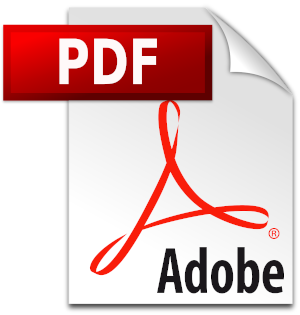 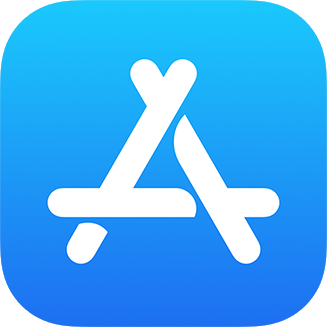 |   |
Translated versions
If you’d like to translate into your native language, here is a chunk to start.
Spanish (PDF, EPUB) (125 pages), Arabic (15 pages), Portuguese (10 pages), Chinese (20 pages)
Book Reviews
Keith Curtis, an 11-year veteran of Microsoft, takes a programmer’s approach in Software Wars, attempting to systematically build a case that free software can help pave the way for a 21st-century renaissance in many fields ranging from artificial intelligence (cars that drive themselves) to the human journey into space (space elevators). For Keith, free software is all about leveraging our collective intelligence.
John Markoff, New York Times
I wanted to thank you for your excellent book, which I read like a novel. Your book incited me to install Debian Lenny, and I must admit that Linux is much much better then it was in 2001 or 2002.
Your views on the industry, Java, Apple, etc. are very clever. Thank you again for your work, which I recommend to all my colleagues here in Paris.
Hi Keith,
I just finished your book (literally ten minutes ago) and felt the urge to express what a pleasurable read it has been for me. I have been deeply inspired by your book and that I believe it is a must-read for anyone doing a bit more than just using computers in their daily lives.
I am impressed that you (as a former Microsoft employee) could make such a dramatic change in both thinking and acting, switching from closed-source to open-source ideologies. I feel you are the more or less perfect person for writing a book like Software Wars, because you have been on both sides. This is the reason I enjoyed your book so much, because I knew I was reading the experiences and thoughts of an educated and experienced writer.
Ole
(A word of warning: this could possibly be the geekiest posting I’ve made to date on G+. Please bear with me). After stumbling across it almost by accident, I’ve been reading the free non-fiction eBook After the Software Wars over the last couple of days and must say I’ve been bowled over by it. Written by an ex-Microsoft developer, Wars is a searing polemic on the state of software development, with its central thesis that “Free” Software (aka Open Source) is our last, best hope for progress.
Covering every topic from the structural failings at Microsoft, the wrong-headed approach of Google’s “Search”, why Ubuntu and Debian should merge, the importance of applying the scientific method to software engineering (putting the “Science” back into “Computer Science”), why languages like C and C++ have to die in order that our major codebases might live, right through to the trouble with Patent law and its application in computing (and medicine), its very nearly a masterpiece of rhetorical discourse; a call-to-arms for would-be volunteer hackers and cyber-activists alike. I’d recommend this to anyone with a stake in our digital future (which is, arguably, everyone); even if you don’t consider yourself to be a techie.
Joel
Writing about software and its production might seem tedious at first glance. However this book succeeds in bringing many different ideas and the true reality of those ideas to light.
One of the many aspects that are covered is the description of the internal world of coding, of being a professional programmer. The author wrote code for Microsoft, and in so doing garnered some fantastic insights into computers and the computer business. As I am a retired programmer it rings of truth and puts into words things that I have felt about writing code. I always looked at writing code as a science. And it becomes obvious that the techniques applied to its production in the industry today are not scientific. And this book does show that software is computer science, that code (in order to evolve) cannot be proprietary, no more than true science can be proprietary.
There are a great many technical references that provide insight. But one doesn’t need to understand bytes and gigabytes to understand the philosophical content of the authors writing. What is to be said about free software and it’s evolution can be said about mankind. I give this book the highest rating available. I recommend that everyone who uses a computer read it. Even if you skim through the book it will provide insight and greater understanding of computers and how they effect our world.
I came home from work, had dinner, sat down and for 4 hours could not get my eyes and mind off your book. Amazing! Loved every little piece of it – will have to do a re-reading in a few months to get a better understanding.
Thank you so much for the effort in bringing this book to us – the community!
Best Wishes,
Eugene
“After the Software Wars” was awesome. I couldn’t stop reading it. I read it over three sittings – Curtis taught me more about open source software and Linux than I ever knew before. It was riveting.
Luke
You don’t know me, I’m just another reader of your book After the Software Wars, I must say that I really (really) enjoy it. Mainly because you just believe and expose that Linux is technically superior, and don’t support hate against Microsoft / Apple / etc. like everybody else in this little world 😉 I’m kinda sick of the fundamentalism, nothing good can come from hate as motivation. I do share a a lot of point of view with you, (which, in general, is saying a lot).
My name is Damian I am 25 years old and I live in Cuba, I read your book a couple of months ago and I just wanted to let you know that your book is a great read, and that the inclusion of the chapter “The outside world” (even though it didn’t totally fit the rest of the content IMHO) is the editorial “mistake” I have enjoyed the most in my life 🙂 I hadn’t heard of Milton Friedman, now I’m reading Milton Friedman’s Free to Choose and it is simply awesome! I mean, there are some stuff I see that is too loose and I have my reservations on others, but he has great didacticism and explains matters in a simple yet insightful way, really easy to read; also this is a drastically different point of view for me!
Anyway, I wish you the best of lucks in your work as in your life and I hope you continue writing books as entertaining and insightful as this.
Best Regards,
Damian
A very intriguing viewpoint on software, expanded into all facets of life at the end. Although I do not immediately agree with the last portion of the book, as I think the author’s conclusions fail to take into account some important obstacles (man’s nature, the uneven distribution of development, attitudes of non-US/European countries in the matter, etc.), but it is truly a fascinating thought experiment. The author gets five stars because I think he really provokes thought, both about free software and the case for that freedom to be extended to all aspects of culture, life, and governance, and despite my disagreement, he is cogent and consistent throughout. Would definitely recommend this book.
Benjamin
An excellent insight on the strengths of open and how even closed source companies could improve their bottom line and product quality by switching to open source. In my opinion, the book should be required reading for all IT professionals and all corporate CTOs.
Edward

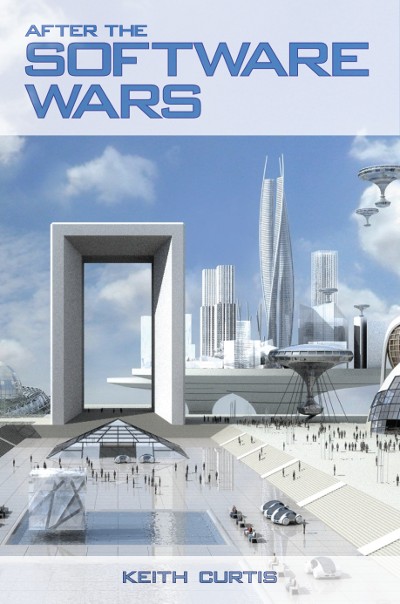
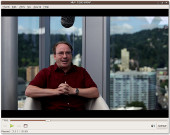
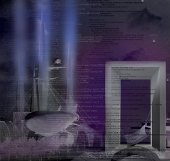

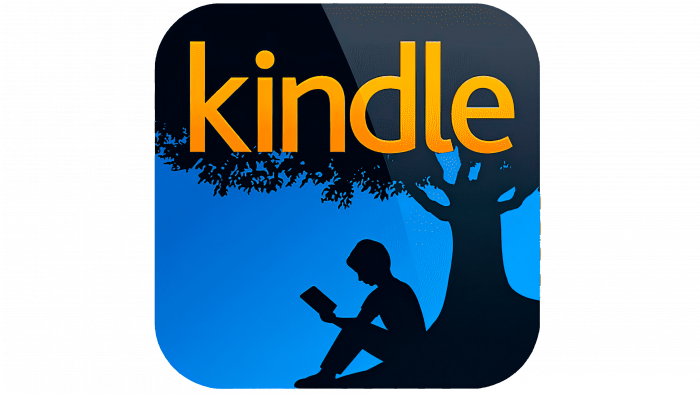
[…] Više o Keith Curtisu i njegovoj knjizi pročitajte na njegovoj stranici http://keithcu.com/wordpress/?page_id=407 […]
[…] visión actual del software libre y su futuro: After the Software Wars After the Software Wars: un libro de Keith Curtis. Altamente recomendable para los que deseen tener una visión más clara de las razones por las que […]
[…] I’ve found a most interesting book written by a Microsoft Professional converted to the open source cause. The book can be downloaded for free from the Internet, I would highly recommend it to all who are interested in the open source culture. The Author takes the reader on a journey back in time from the beginning of the Open Source and continues on trying to envision a possible future, which he self admits might look completly different if we will not make the right choices, when it comes to spreading knowledge. […]
[…] After the Software Wars […]
[…] and the open source side of things, which resulted in a change of perspective and a published book. See more about his book here, including a link to a free PDF […]
[…] from http://keithcu.com/wordpress/?page_id=407 […]
[…] 本书的下载地址,可以免费获取:http://keithcu.com/wordpress/?page_id=407 […]
[…] Download the book here… […]
[…] Download. Posted in Open Source « Advances in Robotics, Automation and Control Building ICC Profiles – The Mechanics and Engineering » You can leave a response, or trackback from your own site. […]
[…] Guide and Reference by Keir Thomas. * The Cathedral and the Bazaar by Eric S. Raymond (esr). * Software Wars by Keith Curtis * The Free Software, Free Society: Selected Essays by Richard M. Stallman (rms). * […]
[…] have been reading an ebook by Keith Curtis called After the Software Wars and couldn’t help but think about how right he […]
[…] Details Author(s): Keith Curtis Format(s): PDF, ePub File size: 3.10 MB Number of pages: 34 Link: Download. Posted in Open […]
[…] a book about Linux. He is currently making a movie loosely based on it. You can learn about it on his website. For questions please refer to our Q/A forum at : […]
[…] to Linux: A Hands on Guide (Machtelt Garrels, 2002-2010) FLOSS & Philosophy After the Software Wars (Keith Curtis, […]
[…] a portal, and a fantastic city, but it was just recently I recognized it, it was the front page of Keith Curtis book After the Software Wars, which was released a couple of years ago. I asked Keith who had made the wonderful picture, and he […]
[…] Originally Posted by sycamorex His book "After the Software Wars" was quite good. Looking forward to the film. It's also free! http://keithcu.com/wordpress/?page_id=407 […]
[…] desarrolladores.Más que una película, es un documental basado en una parte del libro llamado “After the Software Wars” (disponible gratuitamente y muy recomendable) que escribió Keith Curtis (el productor […]
[…] than a film, is a documentary based on a portion of the book called ” After the Software Wars “(freely available and highly recommended) who wrote Keith Curtis (primary producer). He […]
[…] que una película, es un documental basado en una parte del libro llamado “After the Software Wars” (disponible gratuitamente y muy recomendable) que escribió Keith Curtis (el productor […]
[…] http://keithcu.com/wordpress/?page_id=407 http://www.indiegogo.com/SoftwareWars […]
[…] “Software Wars” is an in-development documentary by Keith Curtis, based on his 2009 book of the same name. It’s a look at how free and open source software can make our world a better place, and the […]
[…] Wars” is an in-development documentary by Keith Curtis, based on his 2009 book of the same name. It’s a look at how free and open source software can make our world a better place, and the […]
[…] κίνητρό μου για να γίνει αυτό προήλθε από το βιβλίο: After the Software Wars. Κάποιος με έπεισε να το κάνει […]
[…] promotorul unei astfel de idei. L-am citat in cateva articole si ii voi urmari constant scrierile. After the Software Wars este cartea sa, iar recent Keith a scos un film in care isi promoveaza ideile. Mai mult, el a […]
[…] at 2009, Keith Curtis (@keithccurtis) wrote book “After the Software Wars“. It’s a book about Free Software and how this idea could change our […]
[…] Curtis, perhaps best known as the author of After the Software Wars, today blogged about his reservations. His first statement is enough to worry all users of GNOME […]
[…] promotorul unei astfel de idei. L-am citat in cateva articole si ii voi urmari constant scrierile. After the Software Wars este cartea sa, iar recent Keith a scos un film in care isi promoveaza ideile. Mai mult, el a […]
[…] being converted to the world of Linux and open-source software. The movie is based on a portion of Curtis’ book, “After the Software Wars,” but he’s working on the project with an extensive virtual team out of L.A. — Source: […]
[…] Keith Curtis quiso traer de nuevo a escena la batalla por el software y, después de su libro ‘After de Software Wars’, se planteó la posibilidad de llevar la historia a la gran pantalla. Pero la campaña de […]
[…] Keith Curtis quiso traer de nuevo a escena la batalla por el software y, después de su libro ‘After de Software Wars’, se planteó la posibilidad de llevar la historia a la gran pantalla. Pero la campaña de […]
[…] que una película, es un documental basado en una parte del libro llamado “After the Software Wars” (disponible gratuitamente y muy recomendable) que escribió Keith Curtis (el productor […]
[…] Teaser trailer for Software Wars, the movie: http://keithcu.com/wordpress/?page_id=407 […]
[…] After the Software Wars […]
[…] Teaser trailer for Software Wars, the movie: http://keithcu.com/wordpress/?page_id=407 […]
[…] que una película, es un documental basado en una parte del libro llamado “After the Software Wars” (disponible gratuitamente y muy recomendable) que escribió Keith Curtis (el productor […]
[…] passionately argues why it offers the greatest hope for humankind´s future. In his recent book, After the Software Wars (PDF, EPUB), Curtis lays out arguments for why his former employer, Microsoft, and other […]
[…] promotorul unei astfel de idei. L-am citat in cateva articole si ii voi urmari constant scrierile. After the Software Wars este cartea sa, iar recent Keith a scos un film in care isi promoveaza ideile. Mai mult, el a […]
Long before in 1920s John Dewey said Every great advance in science has issued from a new audacity of the imagination.
[…] download: Software Wars, the Movie Soundtrack for the […]
[…] Article URL: https://keithcu.com/wordpress/?page_id=407 […]
[…] I wrote a book and made a movie about free software, ideas that you are also obviously passionate about. I’m writing to you in defense of the free expression of ideas, and Democracy itself. […]
[…] After the Software Wars – Free […]